
ENCW 212 Spring 2021
Feb 1st, 2021 by felton21

Feb 1st, 2021 by Cynthia

Feb 1st, 2021 by Maddie Swartz
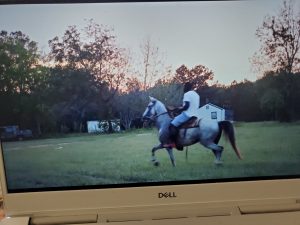
Jan 31st, 2021 by Emily Raine
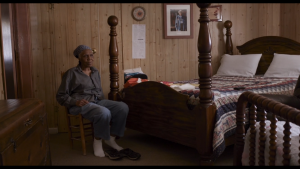
Jan 30th, 2021 by Margie
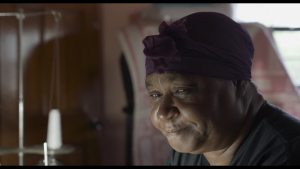
Jan 30th, 2021 by Emily DuBois
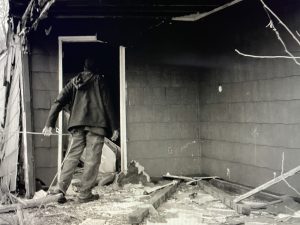
Jan 29th, 2021 by Kylie

Jan 29th, 2021 by Tapanga
This story by Richard Ford featured a man and his partner, Arlene, as he took Arlene’s ex-husband to jail. The narrator, Russ, tried to tell a story about Bobby, Arlene’s ex-husband, and the events of the morning and trip of taking him to jail. It was a relatively slow-paced story being that it wasn’t a fight or anything dramatic in the process of taking Bobby to jail but merely Russ and Arlene trying to give Bobby some decent time with people he knew before turning himself in. The narrator spoke about the uncertainty in life. He spoke about the event looking back, perhaps thinking about it rather than speaking or writing about it, not long after he took Bobby to jail. At the end, I realized this is a recent event and see the fear the narrator had about being able to lose everything one day and unable to get it back — where he would end up alone.
The narrator thought the story is about Bobby, but I find it is more about the unspoken fear the narrator had toward being alone. He feels bad for Bobby losing his life and winding up in jail, sure, but he feared making the same mistakes as Bobby has that he would never do — surely, Russ would never make the same mistakes. I don’t think the narrator understands the fear he had toward being alone. It is possible Bobby merely went crazy, but he seemed normal to me, just fearful and irrational when in fear. I don’t think the narrator saw that, from where he stood, it shouldn’t be easy to lose his life when he hasn’t done anything wrong or illegal to throw him in jail. I don’t think he understood anyone else — Bobby and Arlene at least — besides is daughter, Cherry. He probably saw Bobby as a crazy man or a man with crazy streaks that can be very dangerous, but he doesn’t know Bobby very well, so it’s understandable why he’d think Bobby is insane. As for Arlene; Russ, to me, didn’t quite understand the relationship she and Bobby had. It sounded as though when Russ had his divorce, they washed their hands of each other, and yet there is this divorced couple where she is trying to give her ex a little bit of life before having him turn himself in. It seems, toward the end at least, that the narrator realized Bobby and Arlene still have love for one another.
Russ seemed to think of the events as a reflection. He thought about the situation, and it was almost as if he was putting himself in Bobby’s shoes. He was thinking about the possibilities of things going wrong in his life, how to prevent them or to get out of them, but also about how other relationships influenced him and his relationships. Arlene clearly stated that she was not Cherry’s mother, which while sounding hostile, can stand as a permanent crack in the family he was trying to hold together. Bobby and Arlene had a life together before he and Arlene became an item — there will always be comparisons, reflections, and more falling on her previous relationship and husband. She may compare Bobby and Russ, as she did near the end, or think about what life could be like if Bobby didn’t go to jail or if she’d stayed with him. I think the narrator saw these strings tied, in one way or another, together. He seems tender in his telling of the story, sympathetic even. He wanted to be kind to Bobby and be a good man for Arlene and good role model for Cherry, but he can’t help but wait for Bobby to get out of the picture so he can start his life and family without interruptions.
I think the narrator didn’t change much over the course of the story, other than maybe becoming a little more fearful of life’s uncertainty. Telling this story seemed meaningful to the narrator because it’s his way of reassuring himself that he is not Bobby. He hadn’t done what Bobby had done. He would not end up in jail like Bobby had. It was as if it was a way of protecting and reassuring himself.
Jan 29th, 2021 by Tapanga

For some reason when I had watched this video Wednesday, this image stuck out to me. So, I think that’s a good reason to look back on it to write something about it. I think this could attribute to a story of any sort, whether kind, loving, dramatic, horror, and so on. Personally, I can see a bit of Picasso’s work in Lonnie’s wire work but I can also see the hanging head of a decapitated man. There is also the illusion of seeing a hanging emblem of one’s life, love, and/ or partner. With the gray background and wintery surroundings of leafless, lifeless, still trees, encourages a more harrowing story.
Jan 28th, 2021 by newman21
This short story has a lot of different things going on. It starts with the narrator taking an exam in college. She wants to get better than a C on her exam as all of her other courses are C work. She struggles with one of the questions and gets frustrated when the assistant professor said time was up. On her way home, she talks about how she once decorated an apartment she loved. But then came to reality talking about her apartment looking like poverty now. She keeps having this ringing in her ear that won’t go away, she thinks it’s lack of sleep, or too many pills or teas. We find out that her parents died in a bad car accident and that she is living alone with just a picture of them on her wall.
Robison is trying to make the narrator a depressed and alone college student, wishing that she could have more and do better than she is. She wants to have an apartment she can decorate with fancy things. She wants to get better grades than C work. But I think the thing holding her back is that she doesn’t have her parents to push her nor help her anymore. She is simply depressed and is trying to keep moving forward without her parents.
Jan 28th, 2021 by newman21
“Rock Springs” is narrated by a man named Earl, a dad to a little girl named Cheryl. Earl has a long criminal background while trying to stay afloat for himself and dragging his daughter with him. He finds a girlfriend named Edna and moves into her house. At this moment in the story, we think things are going somewhat well in Earl’s life. But they decide to leave for Florida and Earl has to steal a car to get there, as they get about a quarter of the way to Florida Ford adds some nervous tension. The cranberry Mercedes starts to have issues. Edna starts to get irritated knowing that it’s stolen and they have no other way of getting another car. This starts to add tension between Earl and Edna because Earl never plans ahead. They end up breaking down right outside of a town called “Rock Springs”. Earl has to drive the stolen car into the trees and sand. Then leaves Edna and Cheryl alone while he goes to find someone with a phone to call a taxi. This is where Ford shows us that Earl is not just a criminal but a manipulative liar as well. He tells the woman that is allowing him to use her phone that he is an ophthalmologist. We also see that he is a liar when they check into the motel he claims to be an ophthalmologist again and using a false name. When they arrive and get settled we see that the love between Earl and Edna starts to fade when we find out that Edna is tired of the life they are living on the run and wants to go home alone. It ends with Earl questioning what other people see him as.
In this story, Ford is showing us a character that only cares mostly for himself and about not getting caught by the law. He lives on the run, making everything up as he goes; it’s almost like he is writing his own story with his life. Though he has a daughter and a girlfriend in his life, he pulls them into his criminal world of lying, stealing, and manipulation. Ford makes it clear that Earl has no real plans on his way to Florida with his “family” other than not getting caught. Earl is even lying to himself because he tells his “family” promises he can never keep. But in the moment of saying it, he really believes he can provide these promises, and they always fail on his part.
Jan 28th, 2021 by Renee
“Rock Springs” is a story that roughly follows a “family” on their journey to Florida. However, Ford manages to change almost every aspect of this simple summary. This story is full of lies and fabrications, parenting, decision making, and probably any other number of things. This story is really about Earl, a criminal father trying to do what is best for himself while pulling along his young daughter Cheryl and his girlfriend Edna.
There is a certain lack of love that Ford was able to instill within this story. Sure, one can say Earl must love his daughter if he took her with him, or that he loves Edna enough to know what is best for her, but neither of which are the case. Ford was able to develop Earl into a “manipulative” character.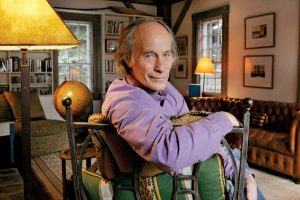 He showed several different sides depending on his situations, but the reader does not know what he is actually thinking until he monologues to himself. Cheryl and her dog Little Duke are side characters but still hold a large place within the story. I believe Ford created them specifically to show, for one, how human Earl is. That he had a family, a wife and kid, but now is messing up Cheryl’s life just like he did to his own. Cheryl and Little Duke also give off a nagging emotion in the scenes they are involved in. Earl HAS to bring them with him, even if he did not want to or even if he was annoyed by having to take care of them himself, he still had to bring them, and Cheryl and Duke remind him of this every time he sees them or thinks about them.
He showed several different sides depending on his situations, but the reader does not know what he is actually thinking until he monologues to himself. Cheryl and her dog Little Duke are side characters but still hold a large place within the story. I believe Ford created them specifically to show, for one, how human Earl is. That he had a family, a wife and kid, but now is messing up Cheryl’s life just like he did to his own. Cheryl and Little Duke also give off a nagging emotion in the scenes they are involved in. Earl HAS to bring them with him, even if he did not want to or even if he was annoyed by having to take care of them himself, he still had to bring them, and Cheryl and Duke remind him of this every time he sees them or thinks about them.
It is extremely interesting to watch the story unfold while reading through it. Ford created a dynamic world within 27 pages full of everything that a story should have, most importantly a purpose. The purpose of “Rock Springs” could be anything really, but to me I see it as a story from the other side of the pristine and clean.
Jan 28th, 2021 by leggy
This story presents itself in a detached and/or disassociated play-like structure. The narrator, Jackie, spends a three-part narrative undergoing a maturity shift as he deals with the fact his mother has committed adultery. The figurative sections of his life make up the assumed parts of a play.
The first stage of change represents Jackie’s initial shock to finding out about his mother’s infidelity. It starts with a sort of male bonding experience. It shows a father and son enjoying their day together.The mother is only mentioned in passing throughout this section and is never brought to the forefront of the story. You can tell from the wording used throughout this section that the farther and son spend a lot of time hunting, fishing, and doing “daily tasks. It even implies the farther “did not know limits,” as they stayed out day after day, presumably leaving the mother alone at home for a copious amount of time. You then start to get the underlaying message as Jackie’s father asks if he had thought of sex or girls before. This is when you first begin to get an understanding of Jackie’s vantage point on life as he replies by saying, that no, he hadn’t though of sex and only worried about his parents dying before him. This theme of sex and fear continues for Jackie as they continue on their way home. The father comments on the neighboring farmers field saying that they have waited too long to harvest their wheat and they will lose it to the cold. He says they “knew nothing about farming”. You can assume the father has very little concern about the actual field and is in turn referring to his relationship with the mother and not the wheat field.
The second stage shows Jackie as he come to accept human sexuality and that parental figures are less of authority figures and more just normal people. Jackie first slips into this mindset when he releases that Woody, the person his mother cheated with, is very close to his age group. This is shocking to Jackie as he has never seemed to think of sex, gender, or overall sexuality. We can see in the first part that Jackie’s feelings on sex are limited, yet this person so close to his age has had sex with his mother. The difference perplexes Jackie as he says, “He and I were not so far apart in age…But Woody was one thing, and I was another.” Jackie’s whole world has changed upon this realization. As this new information regarding sex is shaking his innocence, his mother is also leaving. His life, set with strict parental figures and a strong sense of authority, is broken down to nothing. He has lost his parents. They are no longer his mother and father but just one man and one woman. Just people. He is then left to “be alone with his father”. Jackie is no longer with his farther but alone with him as he had “fallen inside” of himself. Jackie’s parents are humanized for the first time in his life.
The Third part represents Jackie’s ultimate realization of the human condition as it relates to personal cognition. Jackie has come to understand that each person must deal with their own narratives as they see fit. You see him descend into this self isolation as he feels winter setting in during his lone walk past familiar places.You see Jackie come to terms with the changing state of his adolescence as he looks out on a loading dock and suddenly see it as “small.” Jackie has sensed a “turn” in his life. He has begun to assume his own identity outside of his parents. He is gaining the understanding of reality as it exists to each person as an independent variable. He realizes all the questions left unanswered by his parents are meant to be unanswered. He must find his own understanding of the world in his own conscious state.
Jan 28th, 2021 by felton21
We seem to read a lot of stories about liars in this class.
Earl, our narrator, is taking his family on a road trip with no real destination in mind since all he’s trying to do is keep away from the law. We don’t know what he’s running from when the story starts, but we later learn he steals cars and lies about income for a living. He takes his girlfriend and daughter with him and tries to maintain some semblance of normalcy in life despite his inability to do so under these circumstances. We hear a few bits about his life and how he’s gotten where he is, but other than that, Earl is a relatively private man. We don’t really know what he’s feeling until his emotions are too much for him (when Cheryl says he’s about to leave) and that seems to be a defense mechanism for keeping the peace.
Earl also doesn’t seem to look back on the events with any feelings attached to the story. It almost feels like his way of getting his story out when he’s going to jail. A justification almost since he’s always putting other people’s actions and feelings before his own. Yet, it also has the feeling of being a reflection. Like he’s trying to figure out what he did wrong and why Edna wanted to leave him. I don’t think Earl knows that he’s in the wrong here. He tries to justify his actions as him taking care of everyone when really everything could have been prevented if he hadn’t stolen the car in the first place. Edna has every right to not want a life like that and I don’t blame her for leaving.
Jan 28th, 2021 by Emily Raine
The story is about a “family” on the run from the law that stops in a town called Rock Springs, Wyoming. The “family” consists of a father named Earl who is the narrator of the story, his girlfriend Edna, Earl’s daughter Cheryl, and her pet dog named Little Duke. They had stolen a car from the parking lot of an ophthalmologist previously and were headed down to Florida to stay with friends who would not rat them out. The car though breaks down and they ditch it once they reach Rock Springs. Earl relies on help from a woman of color to call a taxicab and get them to a motel. They reach the motel and stay there for the night while trying to figure out what to do next. The story ends with Earl looking into different cars at the motel determining which one to steal for the family’s next leg of the journey and wondering if anyone is watching him.
This story is only part of a larger story that is still unfinished as the family has yet to reach their destination. During the events that are happening, Earl, our narrator looks back onto his life. We learn that he has been involved with breaking the law multiple times. This time though he is on the run for bad checks. Earl does not want to live a life of crime as he had once had an actual job but there is nothing else he can do. He had already taken his girlfriend Edna with him to avoid her ex-husband Danny and Cheryl was his daughter, he could not leave her behind.
One notable thing about the town of Rock Springs is that the place has a gold mine where lots of gold can be found. Earl learns this once he enters the home of the black woman to call for a taxi. He asks her about the plant she saw and she tells him that because of the gold mine, her life with her husband and grandson is wonderful because her husband only has to work three months a year. They only stay in the trailer park temporarily during that time and then return to their home in Rockford, Illinois. Earl feels jealous but does not show it as he wishes he had a life like they did.
Earl’s regret is subtle but present in the story. He regrets the life he is living and the fact that he dragged Edna and Cheryl into this. All he wants is a stable family life but he cannot have that because of his past offenses towards the law. He even states on page 17 that even though he was an offender, he never saw himself as one and had no intention of becoming one. There is no explanation given as to how he turned to a life of crime but one can infer based on page 19 that it may have had to do something with meeting Edna back when he had a job and was living with Cheryl’s mother.
Both stories in general have a common theme of leaving family behind and how it affects everyone. “Rock Springs” is no exception to this.
Jan 28th, 2021 by Kaia
When I was reading “Great Falls” I kept thinking about one of JGB’s posted questions: “Why is the narrator telling the story?” I think that it’s clear that the narrator is trying to process a traumatic childhood event later in life. His mother’s infidelity, his father’s violence, and his mother’s subsequent absence is a lot for any kid to process in one night. I think this is further proven by the ending of the story. He asks questions that can never be answered, perhaps that there are no answers to.
Why wouldn’t my father let my mother come back? Why would Woody stand in the cold with me and risk being killed? Why would he say that my mother had been married before, if she hadn’t? And my mother herself- Why would she do what she did?
By asking these questions at the conclusion of this story, we know that they have been bothering the narrator his entire life. That he’s been looking for these answers and thinking about them since this night took place. They probably haunt him. The author could’ve just left the story there, with the implication that the narrator will never get over this night, that it will always follow him around. However, the last paragraph changes my understanding of the narrator. He answers his questions in a very nihilistic way, saying that people are cold, there’s just a little bit of awful in everyone. His answer is uncaring and bitter. Instead of ending the story with questions, we end the story seeing how this event affected the narrator in the long run. We see how it shaped his world view into what it is, bitter and apathetic.
Jan 27th, 2021 by Hannah Marron
This piece of literature by Richard Ford places the reader in the memories of Jackie, our narrator, as they experience the breaking up of their family throughout the duration of the story. The richness of the descriptions the author offers to us provide a very accurate representation of how we remember old experiences, with some details being particularly prevalent while the rest of the scene is more vague, or lacks an understanding that the narrator has developed since the event occured. The shallow perspective the author uses in this story allows us to experience the events that are being relayed to us by Jackie in a very immediate fashion, as close to the way Jackie would have experienced these memories as possible. The author provides very useful insight into what is actually happening in this story by posing questions the narrator wishes they would have asked or actions they would have done if given the opportunity to try again. A common theme throughout this narrative is a lack of understanding, or the true meaning behind people’s outward appearance or actions. The narrator describes Woody as a young man, who appears to be wealthy and is not the farm type. But he does not make the connection between Woody and his mother, and in his innocent understanding of the situation does not fully grasp how this predicament affects the rest of his life. Jackie realizes now as an adult that there are certain questions he wished he would have asked his mother, and things he would have rather done. But he could not have known any of those things at the time this story came into being.

Innocence is another theme the author of this story draws upon very efficiently. The youth of Jackie influenced largely how he experienced the separation of his parents; had he been older, maybe he would have behaved differently. However, his innocence and youthfulness prevents the true nature of Woody’s appearance at his home from being known to him until later in life. Being young is not always a disadvantage, but this piece is relatable for anyone that reads it, as we all have had experiences that make no sense to us until we are older. The vagueness of youth is both a blessing and a curse, and if Jackie had known more about was what really going on perhaps it would have been an even more traumatic experience for him. I thought the title was particularly ironic, because although the location where this story takes place is in Great Falls, this story is also about the fall of Jackie’s family and the beginning of a new chapter in his life because of that massive change, and the falling out between his parents.
Jan 27th, 2021 by Maddie Swartz
The story “Great Falls” appears to be Jackie’s way of coping with an event from his childhood that even in adulthood, he does not fully understand. The separation of his parents is most likely something he thinks about often based on the fact he has visited the site of the house before. Throughout the story we see him battle with complicated relationships with both parents due to the manner of the separation. He wonders why his mother left and wonders why his father would not let her return.
One large part of Jackie’s struggle is attempting to understanding parts of the story he was not there for. We see this struggle in the following excerpt.
“Did she say, this is what I’ve wanted all along? And did he say, I’m sorry for all this, or I’m glad, or None of this matter to me? These are not the kinds of things you can know if you were not there. And I wasn’t there, and I did not want to be.” (Ford 44)
Jackie tears himself up over this, questioning himself over things he does not have an answer to. He is even aware enough to say he was not there and because of this had no way of learning this information. This does not stop him from wondering what went on. As well as this Jackie seems to hold his childhood-self guilty for not getting into the car with his mother and Woody. He seems to believe that if he had gotten into the car things would have been better or he at least would have had his answers. This guilt is a prevalent theme seen throughout the story. Another example of Jackie feeling guilty can be seen in the following exert.
“But I did wish then that I had never let her go the night before. Things can be fixed by staying; but to go out into the night and not come back hazards life, and everything can get out of hand.” (Ford 48)
This is not a childhood thought, but a thought Jackie has when recalling the story. In many cases when parents separate children see themselves as responsible for it, it seems these guilty feelings have lingered into Jackie’s adult life. This guilt is irrational as there was no way Jackie could have kept his family together, even if he had stopped his mother from leaving. Unfortunately, Jackie does not seem to realize this and still holds himself responsible for something that happened when he was a child. This is one of the most interesting aspects of this story, because while this story is a way for Jackie to cope it also shows he is not coping well. This poor copping is the author’s way of showing how Jackie’s childhood trauma affects him even in adulthood.
Overall while I do believe the events of the story are important, I believe the most important part of this story is that it shows Jackie’s current feelings about it. By showing Jackie still struggles with the events of what happened it shows how important it is to him.
Jan 27th, 2021 by JGB
A reminder of the first Writers Series event of the Spring:
Monday, February 1, 2021 | 7:30pm – 9:00pm
A virtual reading by poet, essayist, and short story writer Lee Ann Roripaugh.
 Lee Ann Roripaugh is the author of five volumes of poetry, the most recent of which, tsunami vs. the fukushima 50 (Milkweed Editions, 2019) was listed as a finalist for the 2019 Lambda Literary Awards, and named a best volume of poetry in 2019 by the New York Public Library. Her second volume, Year of the Snake (Southern Illinois University Press), was named winner of the Association of Asian American Studies Book Award in Poetry/Prose for 2004, and her first book, Beyond Heart Mountain (Penguin Books), was a 1998 winner of the National Poetry Series. The recipient of a 2003 Archibald Bush Foundation Individual Artist Fellowship, she was also named the 2004 winner of the Prairie Schooner Strousse Award, the 2001 winner of the Frederick Manfred Award for Best Creative Writing awarded by the Western Literature Association, and the 1995 winner of the Randall Jarrell International Poetry Prize.
Lee Ann Roripaugh is the author of five volumes of poetry, the most recent of which, tsunami vs. the fukushima 50 (Milkweed Editions, 2019) was listed as a finalist for the 2019 Lambda Literary Awards, and named a best volume of poetry in 2019 by the New York Public Library. Her second volume, Year of the Snake (Southern Illinois University Press), was named winner of the Association of Asian American Studies Book Award in Poetry/Prose for 2004, and her first book, Beyond Heart Mountain (Penguin Books), was a 1998 winner of the National Poetry Series. The recipient of a 2003 Archibald Bush Foundation Individual Artist Fellowship, she was also named the 2004 winner of the Prairie Schooner Strousse Award, the 2001 winner of the Frederick Manfred Award for Best Creative Writing awarded by the Western Literature Association, and the 1995 winner of the Randall Jarrell International Poetry Prize.
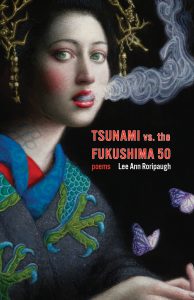 Her short stories have been shortlisted as stories of note in the Pushcart Prize anthologies, and five of her essays have been shortlisted as essays of note for the Best American Essays anthology. Her poetry, essays, and short stories have appeared in numerous journals and anthologies. The South Dakota State Poet Laureate from 2015-2019, Roripaugh is a Professor of English at the University of South Dakota, where she serves as Director of Creative Writing and Editor-in-Chief of South Dakota Review. She is also a faculty mentor for the Carlow University low-residency M.F.A. in Writing, and served as a 2012 Kundiman faculty mentor alongside Li-Young Lee and Srikanth Reddy.
Her short stories have been shortlisted as stories of note in the Pushcart Prize anthologies, and five of her essays have been shortlisted as essays of note for the Best American Essays anthology. Her poetry, essays, and short stories have appeared in numerous journals and anthologies. The South Dakota State Poet Laureate from 2015-2019, Roripaugh is a Professor of English at the University of South Dakota, where she serves as Director of Creative Writing and Editor-in-Chief of South Dakota Review. She is also a faculty mentor for the Carlow University low-residency M.F.A. in Writing, and served as a 2012 Kundiman faculty mentor alongside Li-Young Lee and Srikanth Reddy.
Go here for the Zoom registration link.
Jan 26th, 2021 by Natalie
This story focused on themes of anger, jealousy (?), and happiness. I question the word jealousy because I’m not sure if it is the correct word to use to describe the narrator’s feelings toward her sister, Stella-Rondo. I think in a way, it is correct because the narrator seems to want to be treated the same way her sister is. She points out to her mother that if she were to be doing the things Stella-Rondo was doing, she would not be welcomed at all. For most of the story, the narrator is angry. This anger reaches a climax once her uncle sets off fireworks in her bedroom and she decides to leave the house. I mentioned the word happiness because the narrator seemed to reach a state of happiness after she moved out of the house. She even seemed to be in a better mood while she was packing her things.
The tension between the narrator and the rest of the family seems like a common theme between some of the stories we have read so far. “The Liar” displayed tension between the narrator and his mother. “Chemistry” showed tension between the father and the mother.